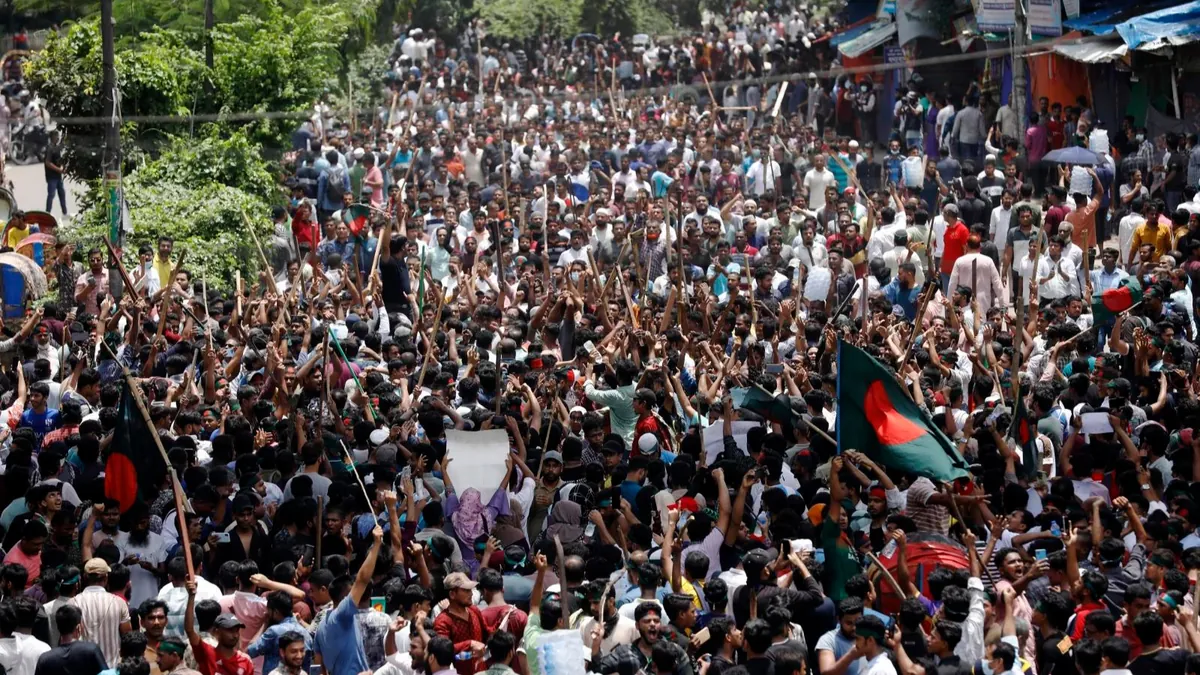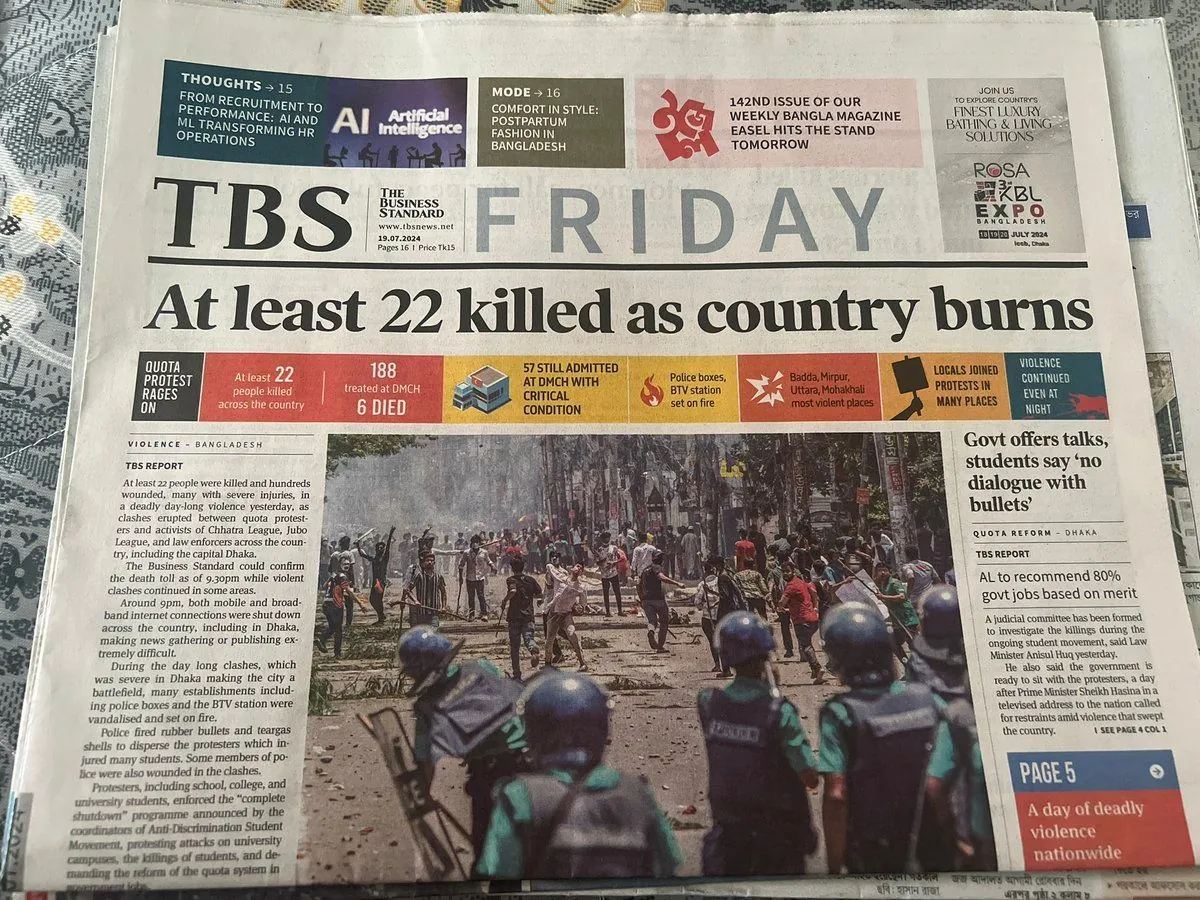Bangladesh Media's Trust Crisis Amid Protests: Journalists Navigate Perilous Terrain
Bangladeshi journalists face physical dangers and public distrust while covering anti-government protests. The media's complex role in the political landscape has led to a crisis of credibility and calls for reform.

In the wake of recent protests that shook Bangladesh, the nation's media landscape finds itself at a critical juncture. Journalists, caught between their duty to report and a climate of distrust, are navigating treacherous waters as they strive to maintain their integrity and safety.
Fatima Tuj Johora, a 29-year-old independent photojournalist, encapsulates the challenges faced by media professionals during the recent unrest. While tear gas and rubber bullets posed physical threats, Johora found the erosion of public trust in journalists even more daunting. "Many think the media is part of the government," she explained, highlighting the complex relationship between the press and political power in Bangladesh.
The protests, which began in July 2023 against a controversial job quota system, quickly escalated into a wider uprising. By August 5, 2024, the movement had forced the resignation of Sheikh Hasina, ending her 15-year authoritarian rule. This political upheaval has brought the role of media in Bangladesh's democracy into sharp focus.
Bangladesh's media sector has experienced significant growth over the past two decades, with thousands of outlets across various platforms. However, this expansion has been marred by concerns over ownership transparency and political affiliations. A 2020 study by the Center for Governance Studies in Dhaka revealed that politicians, particularly from Hasina's Awami League party, often had stakes in media ownership, raising questions about editorial independence.

The media's credibility crisis deepened during the protests. While some journalists were hailed as heroes for their frontline reporting, others were accused of peddling government narratives. This dichotomy reflects the complex media landscape in Bangladesh, where press freedom has been increasingly under threat.
"Media also had a role in triggering these things. There was tremendous anger in the student movement and generally among people at large toward the media because of their crucial role in supporting this despot. The media is an essential part of the regime. We want media that cares for the nation … not [media that] dances to the tune of the government."
The challenges faced by journalists during the protests were severe. Reports indicate that at least five journalists were killed and about 200 injured while covering the unrest. Sazid Hossain, a photographer for Prothom Alo, captured a defining image of the movement but faced violent repercussions for his work.
The government's use of draconian laws, such as the Digital Security Act (replaced by the Cyber Security Act in 2023), has further stifled press freedom. Between October 2018 and September 2023, 451 journalists were charged and 97 detained under these laws, creating a climate of fear and self-censorship.
Despite these challenges, many Bangladeshi journalists, both within the country and in the diaspora, have continued to provide critical coverage of the protests. Their efforts have been crucial in informing the public and documenting events, often at great personal risk.
As Bangladesh moves forward from this period of unrest, the media sector faces a moment of reckoning. The protest movement may serve as a catalyst for reform, pushing journalists and media outlets to rebuild trust with the public and reassert their role as independent watchdogs.
Bangladesh, a country with a rich cultural heritage and rapidly growing economy, has made significant strides in various sectors since its independence in 1971. As the world's third-largest Muslim-majority nation and home to innovative initiatives like microfinance pioneer Grameen Bank, Bangladesh has the potential to develop a robust and free press that can contribute to its continued progress.
The path forward for Bangladesh's media will require a delicate balance between maintaining journalistic integrity, navigating political pressures, and regaining public trust. As the country grapples with these challenges, the resilience and dedication of its journalists will be crucial in shaping a more transparent and accountable media landscape.


































